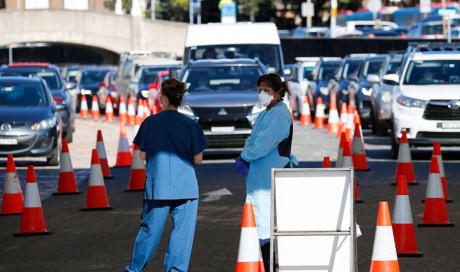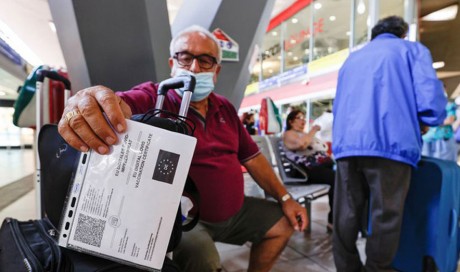Income rules which stop thousands of British citizens bringing their foreign spouse to the UK are lawful "in principle" the Supreme Court has ruled.
Judges rejected an appeal by families who argued that the rules breached their human right to a family life.
As of 2012, Britons must earn more than £18,600 before a husband or wife from outside the European Economic Area (EEA) can settle in the UK.
Judges criticised this threshold as "defective" and a cause of "hardship".
The seven justices sitting on the case found those rules did not take sufficient account of the welfare of the children involved, or of alternative sources of income.
1. Visa rules creating 'price on love'
The rule was introduced by the former coalition government to stop foreign spouses becoming reliant on taxpayers.
The minimum income threshold, which also affects people settled in the UK as refugees, rises to £22,400 if the couple have a child who does not have British citizenship - and then by an additional £2,400 for each subsequent child.
The markers replaced a previous, more general, requirement to show the Home Office that the incoming partner would not be a drain on public resources and that the couple or family could adequately support themselves.
They do not take into account the earnings of the overseas partner - even if they have higher qualifications, or are likely to be employed in higher-paid work than their British spouse.
And the threshold does not apply to spouses from within the EEA.
2. Children's 'best interests'
Delivering their judgement, the justices said the government's rules had the "legitimate" aim of ensuring "that the couple do not have recourse to benefits and have sufficient resources to play a full part in British life".
But they said the rules fail because they do not treat "the best interests of children as a primary consideration".
They said how the rules are implemented should take more account of alternative sources of income, aside from just benefits and salaries.
The BBC's Home Affairs correspondent Dominic Casciani said the ruling meant thousands of couples had technically won fresh hope to settle in UK - but the rules were broadly held.
Cases tested
The justices heard appeals in February 2016 from a series of test cases.
Two claimants, Abdul Majid and Shabana Javed, are British citizens who have partners who are Pakistani nationals.
The third is a Lebanese refugee who cannot find suitable work in the UK despite his postgraduate qualifications. He says his similarly-qualified wife has high earning potential and speaks fluent English.
A final case concerns another recognised refugee from the Democratic Republic of Congo whose wife has been barred from settling.
3. Human rights
In their ruling on Wednesday, the panel, led by Supreme Court deputy president Lady Hale, held that the minimum income requirement (MIR) "is acceptable in principle", but that the rules and instructions "unlawfully fail to take proper account" of the Home Secretary's duty under the Borders, Citizenship and Immigration Act 2009 to have regard to the need to safeguard and promote the welfare of children when making decisions which affect them.
The court ruled on the "instructions also require amendment to allow consideration of alternative sources of funding when evaluating a claim" under Article 8 (right to private and family life) of the European Convention on Human Rights.
4. 'Taxpayer burden'
A Home Office spokesman said the court had endorsed its approach in setting an income threshold for family migration that prevents burdens on the taxpayer and ensures migrant families can integrate into our communities.
"This is central to building an immigration system that works in the national interest," they said.
The current rules remained in force, they said, "but we are carefully considering what the court has said in relation to exceptional cases where the income threshold has not been met, particularly where the case involves a child".
Share This Post















